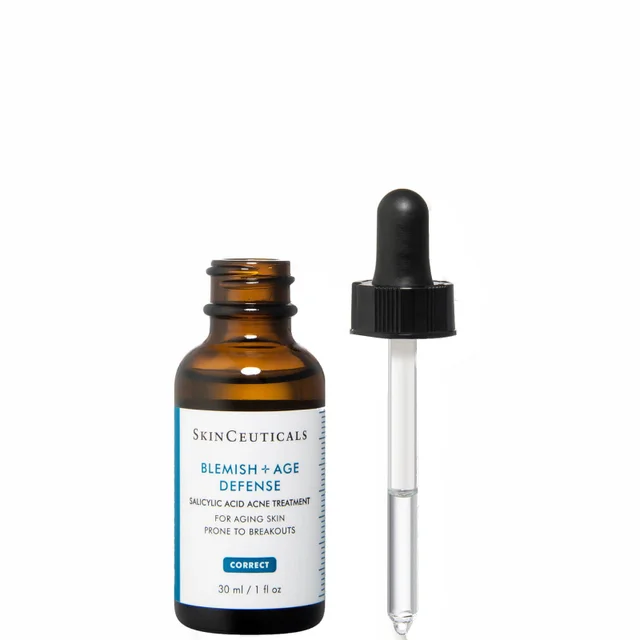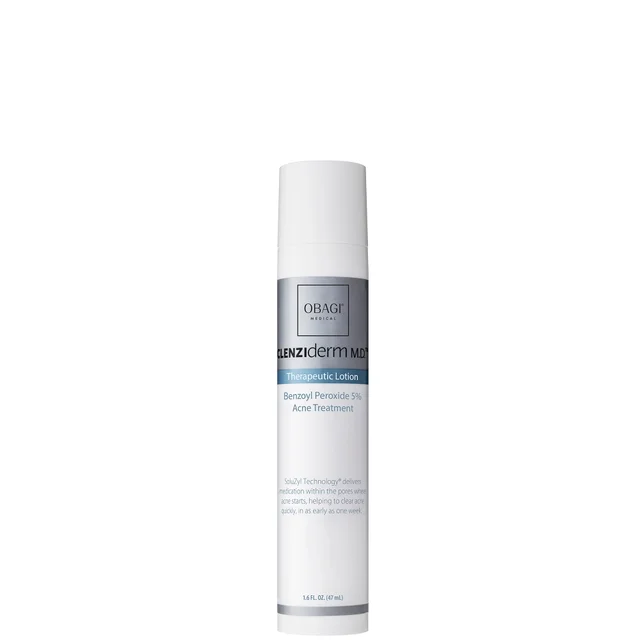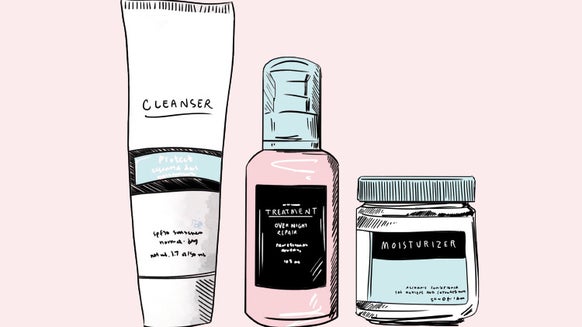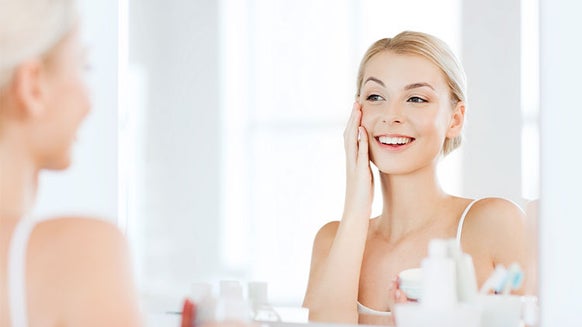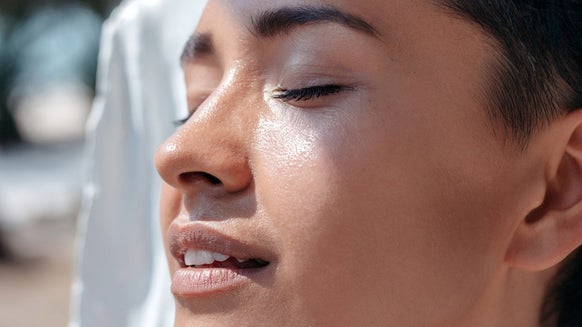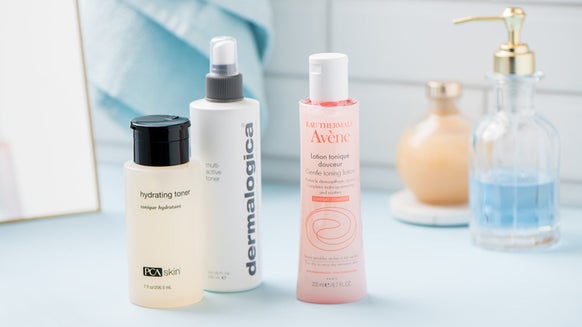When dealing with acne, it’s not enough that we’re diligent about our cleanse-treat-moisturize routine. Because our skin tends to erupt at the slightest trigger---hormonal fluctuations, seasonal changes and certain skin care products---knowing the ingredients we put onto our skin ensures we’re not only treating existing breakouts but preventing future ones from happening as well.Two ingredients that we consistently see in acne regimens are salicylic acid and benzoyl peroxide. That’s no accident: These two are the gold standard when it comes to keeping our pores clean and acne-causing bacteria at bay. But what’s the difference between the two, how do they work and which one is right for you? To get the lowdown on these two powerful acne fighters, we reached out to Dr. Alex Khadavi, MD FAAD, board-certified dermatologist, associate clinical professor of dermatology at the University of Southern California and creator of the three-step acne system Clearogen.
Uses in Skin Care
According to Dr. Khadavi, both ingredients are effective at treating acne, the main difference lies in how they work. “Salicylic acid as a medication is used most commonly to help exfoliate the outer layer of the skin,” he explains. “When applied topically for acne, it opens clogged pores in order to neutralize bacteria while preventing pores from clogging up again. It also promotes shedding of epithelial skin cells, allowing room for new cell growth.”If salicylic acid dissolves dirt, oil and dead skin layers that clog the pores, benzoyl peroxide works by penetrating the pores and killing acne-causing bacteria with oxygen. “Benzoyl peroxide breaks down in contact with skin in order to produce non-toxic benzoic acid and oxygen, which is effective at breaking down comedones (blackheads and whiteheads) and inhibiting inflammation,” he says.Which One’s Better for Acne?
So how do you know which one’s better for you? According to Dr. Khadavi, there might not be a need to choose. “There’s no magic bullet to kill acne for everyone,” he explains. “Both help clear acne in different ways so the best way to address acne is with multiple active ingredients.”To do this, he suggests using both of these active ingredients at small percentages in different application methods and times for a synergistic effect. Below is what he recommends.Salicylic Acid:“Use topically in a cleanser and/or toner formula and apply to the areas affected.”
Benzoyl Peroxide:“For acne treatment, apply to the affected areas in gel, cream or liquid, in concentrations of 2.5% increasing through 5.0% and up to 10%. I recommend using the lowest concentration and build up as appropriate. I don’t recommend 10% benzoyl peroxide solutions as they’re just too harsh for the skin.”
If you’re still unsure of how to build your acne skin care regimen on your own, ask your dermatologist to help you build something suited to you.Side Effects of Salicylic Acid & Benzoyl Peroxide Products
If you have sensitive skin and are worried about side effects, Dr. Khadavi suggests treading with caution. “For salicylic acid, dry skin is the most commonly seen side effect but can be avoided or minimized by using low percentages and using formulas made for sensitive skin with non-comedogenic moisturizing ingredients,” he explains. “Benzoyl peroxide commonly causes initial dryness and sometimes irritation, although the skin develops tolerance after a week or so. Irritation can also be reduced by using mild facial cleansers, a barrier-repairing lotion and wearing sunscreen prior to sun exposure.”
Pregnant or nursing? Jury is still out on whether these two ingredients are safe to use topically during pregnancy, and that’s why the FDA doesn’t permit use of either. If you can’t use both, Dr. Khadavi recommends using sulfur instead.“Sulfur is a great anti-inflammatory and as well as antibacterial ingredient,” he says. “It will help clear acne and help heal the skin. This is also a great solution for people with rosacea, acne and combination skin. Sulfur will help soothe redness as well as clear and prevent acne.” 
